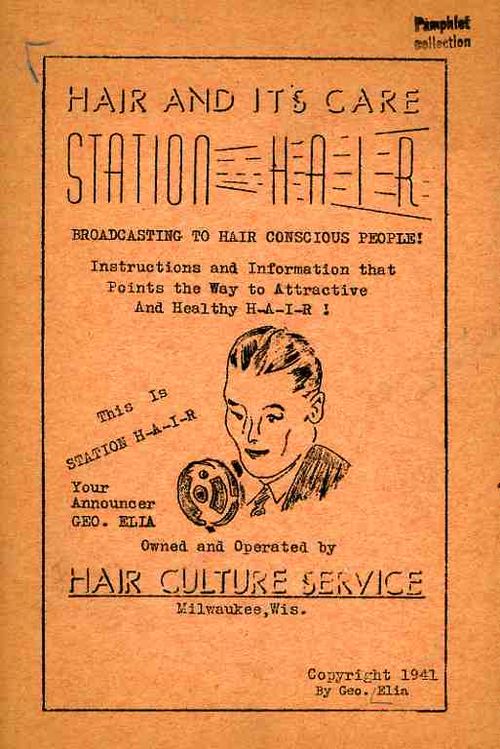JF Ptak Science Books LLC Post 537
 There is a constant and imaginary warfare going on among certain categories in this blog: mainly, its "bad ideas" vs. "outsider logic" vs. "impossible books". The result is that I just give up and fold them all into each other so I don't have to think about them at all. I also haven't made many entries in these areas because, well, there's just so many of them to deal with--but I can tell you that they would make a fantastic Mystery Books gallery show, especially if the viewers were made to supply their interpretation of what the written material was all about from their problematic, time-sucking covers and titles. And I can tell you that reading the content sometimes doesn't help to understand the title or the cover art, the logic of investigation passing through it all like a stony Bushism (where you know that something was said, with words, but that's about all).
There is a constant and imaginary warfare going on among certain categories in this blog: mainly, its "bad ideas" vs. "outsider logic" vs. "impossible books". The result is that I just give up and fold them all into each other so I don't have to think about them at all. I also haven't made many entries in these areas because, well, there's just so many of them to deal with--but I can tell you that they would make a fantastic Mystery Books gallery show, especially if the viewers were made to supply their interpretation of what the written material was all about from their problematic, time-sucking covers and titles. And I can tell you that reading the content sometimes doesn't help to understand the title or the cover art, the logic of investigation passing through it all like a stony Bushism (where you know that something was said, with words, but that's about all).
Take for example Scorn Not That Which You Do Not Understand: the title begs you to do so as you read it, though it took me a few turns to actually understand what it was saying. The problem with the tiny pamphlet is that once you've read a few pages, you know a little less about the book before you knew it existed, which is a hard thing to do. (The writing goes downhill after the title.) 
The Making of Things made me not want to know what was being made, and so I have not to this day opened it, though I judge from outside appearances that it was published around 1940 and is at least three pages long. The title is just so on-beyond simple that knowing what it actually refers to is bound to disappoint.
Station Hair, Hair and its Care, is a written radio broadcast from Station H-A-I-R (brought to you by George Elia of the Hair Culture Service of Milwaukee Wisconsin, and evidently with offices in the Lake Wobegon region near Overthere, Minnesota), taches us all how to have healthy, radiant and attractive hair good enough for radio. In the looks-made-for-radio genre, my own hair (or whatever it is) is definitely in the hair-made-for-radio department, so long as I get enough bootblack to color my scalp. 
(This leads me to a semi-connected memory: does anyone remember a street person in Manhattan, midtown, who was a drummer, with gigantic painted-on jet black eyebrows and painted-on black hair? This wouild've been around 1970. He was heavy, short, and would walk around with drumsticks and play on whatever was available, announcing, if I recall correctly, the famous drummer that he was immitating. He had to have been a famous street performer....Ring a bell with anyone. Jeff?)


I have a very clear memory of a guy drumming NYC, playing the street, anything. But it floats out of time. Was it really 1970? I came back to this post (having not completely read it yet) to reflect on whether or not these pamphlets could one day be interesting in the way that the above alchemy book is. But I already knew the answer. I think the alchemist was an insider, connected to long and rich traditions of culture and knowledge. The outsiders who created these pamphlets are more likely disconnected, floating in a spare world, desperately grasping at meaning. This is not to say the alchemists were right, of course, just more interesting.
Posted by: Jeff | 10 March 2009 at 01:02 PM
I'm very sure it was in the very early 1970's, like 70 or 71. I remember too that his eyes were always raised, looking up. I cannot remember if he was any good, probably he was just scary. I remember that he always wore a black suit and tie. ??
The alchemists were interesting, and had an entire centuries-old system cooking in the kitchen. They just weren't right. Newton was afraid that he was missing something in that cabal, I think, which is why he spent so much time with it. A miilion (?) careful words, trying to get him closer to the mind of the creator to understand other things.
Outsiders today were basically, literally, that, as you say--they also had the deep luxury of having the capacity to print what was banging around in their heads. Hundreds of years ago if was really just the priveleged who had the capacity to find their way into print, or, in a very diminished percentage, the very wealthy (who had not-great ideas) could also find their way there. Going a little further back into the past, the outsider had to worry about retribution, too, in the paths that their theories laid. In the 19th and 20th centuries you could get away with a lot, in print, if you had, um, "challenges" to the basic logics of codified perception. Move them back in time, and utterances like those might find the speaker at the stake.
I don't know how "desperate" the outsiders are, though--they seem a pretty adventurous lot, not worrying about where the edges might be. On the other hand, they may be desperate, because their own very unique perception--leaving them there at the edge--might be the only, lonely, thing connecting them to the world. I dunno. I just scared myself.
Posted by: John Ptak | 10 March 2009 at 09:11 PM
The drummer you describe sounds like the guy featured in the movie Taxi Driver.
http://www.youtube.com/watch?v=RqSUYzg18jM
(the clip is dubbed in spanish...)
Posted by: edfredi | 16 March 2009 at 05:54 PM
This guy looks VERY much like the guy I had in mind, though my (foggy?) memory might make him a little less good looking with a lot less hair. And there wasn't an actual drum involved, though he did look up at the sky like this guy. THANKS!
Posted by: John Ptak | 16 March 2009 at 06:32 PM